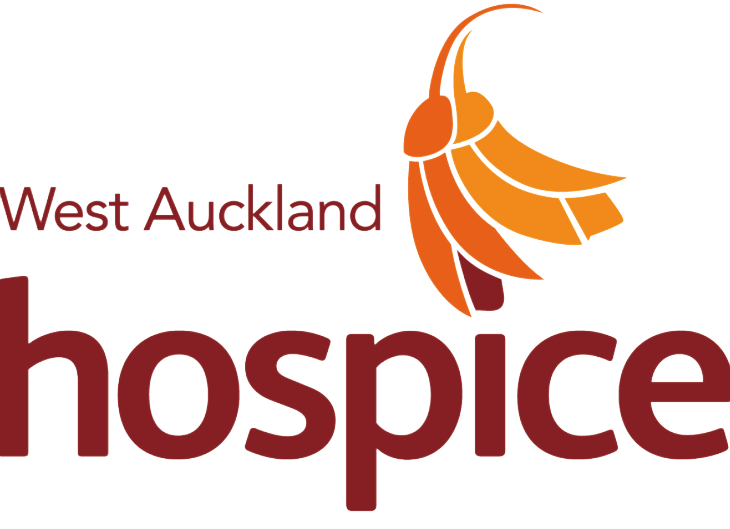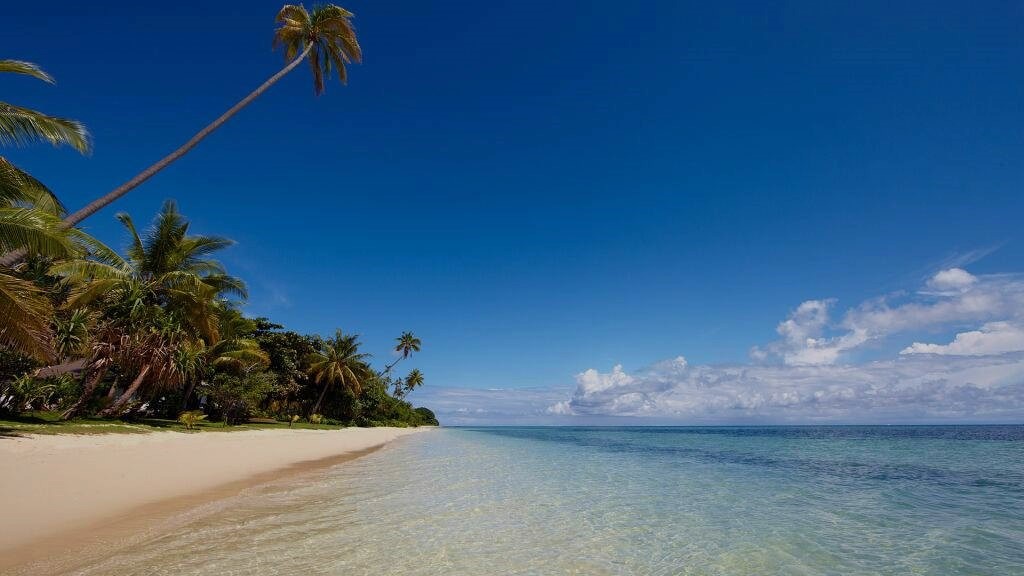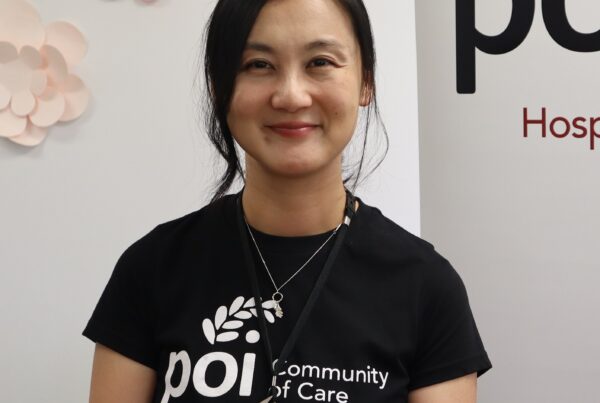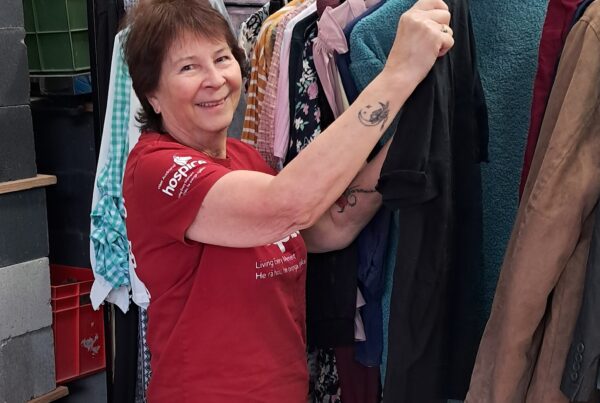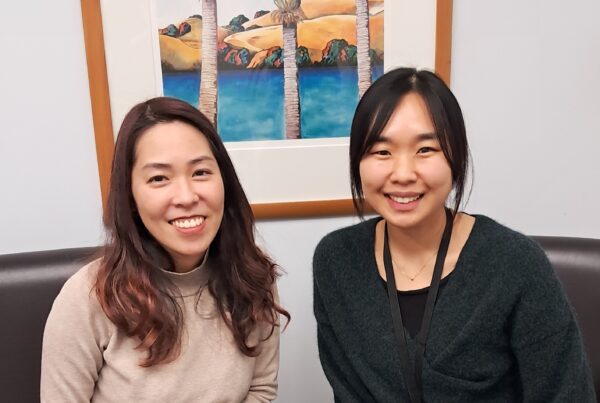Tuvaluan Asita has been volunteering for Hospice West Auckland, assisting with Hospice’s Pacific Health Plan and facilitating Fonos. To celebrate Tuvalu Language Week, we asked Asita to share with us some insights into her culture.
Q. Tell us about your Tuvaluan heritage.
A. Life was very easy during our childhood. We lived off the land and sea, growing our own food and fresh fish, shells, crabs, clams etc. Everybody was happy and enjoyed life. We shared communal feasts, usually followed by fatele (traditional dance). We live closely together and everyone on the island knows each other. We are very family oriented.
Tuvalu means ‘stand in eight’ or ‘unity in eight’ in reference to the eight coral atolls that form the nation. The language is important – each of the eight islands speak the same language but with a unique dialect so you can tell where a person is from.
Every single fatele (dance) has different meanings and messages, but they are usually about empowerment, giving hope, and reminding ourselves of who we are. We have a fatele about Independence Day with traditional chants that reminds of our separation from the Gilbert Islands. Our independence meant we could develop our own nation and culture. The fatele talks about that time – how we had nothing but we had God and our people.
Faith is a big part of our culture. We have different denominations now which is good because it gives people freedom to make choices.
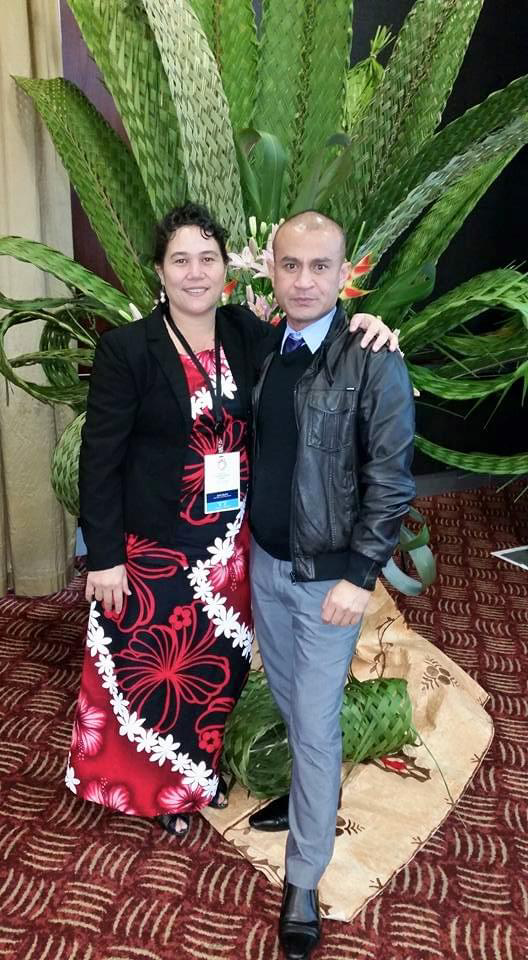
Q. What changes are affecting the Tuvalu culture?
A. There are a lot of changes affecting Tuvalu, mainly caused by climate change. There is saltwater rising from underground so we need to plant our produce on raised levels and in pots. The plant that sustained many generations, pulaka (like a taro), was always grown in pits dug by our ancestors using underground water sources, but now we are experiencing the effects of rising seawater which means that all planting has to be raised. There are droughts and hurricanes with more intense frequencies, and high tides are taking over a lot of the land area. There is now seawater in places where we used to live in the 80s and 90s – it’s everywhere.
Life has become more difficult and Tuvalu now relies heavily on imported goods and food and bottled water. This means that garbage has also become a problem. In the past we grew and cooked our food in leaves, now everything comes wrapped in plastic. We can’t do much recycling and we’re running out of space for the rubbish because our land is limited to just 26 square kilometres. We used underground water for drinking, cooking and washing but now that’s not possible due to sea water intrusion and we depend on a desalination plant. However, if there is no rainfall for two weeks we are placed on alert. It’s predicted that in 25 years’ time half of Funafuti, the capital atoll of Tuvalu, will be covered in seawater.
Q. What aspects of your Tuvaluan heritage are incorporated into your life today?
A. Getting together to share our passion, talanoa about the ongoing development in Tuvalu. There is a big Tuvaluan population in West Auckland. There is no known number of Tuvaluan in NZ, but most Tuvaluan are here in Auckland and estimated to be around 5,000. We are very community oriented. We have community gatherings, such as for weddings, funerals and birthdays where we all come together, supporting each other. It’s how we show our respect, love and care for families, communities and church.
I also volunteer for the Tuvalu Auckland Community Trust here to help raise awareness for educational opportunities, social factors, employment… helping my people understand some of the challenges and emerging alarming issues and to be productive in their lives here in New Zealand.
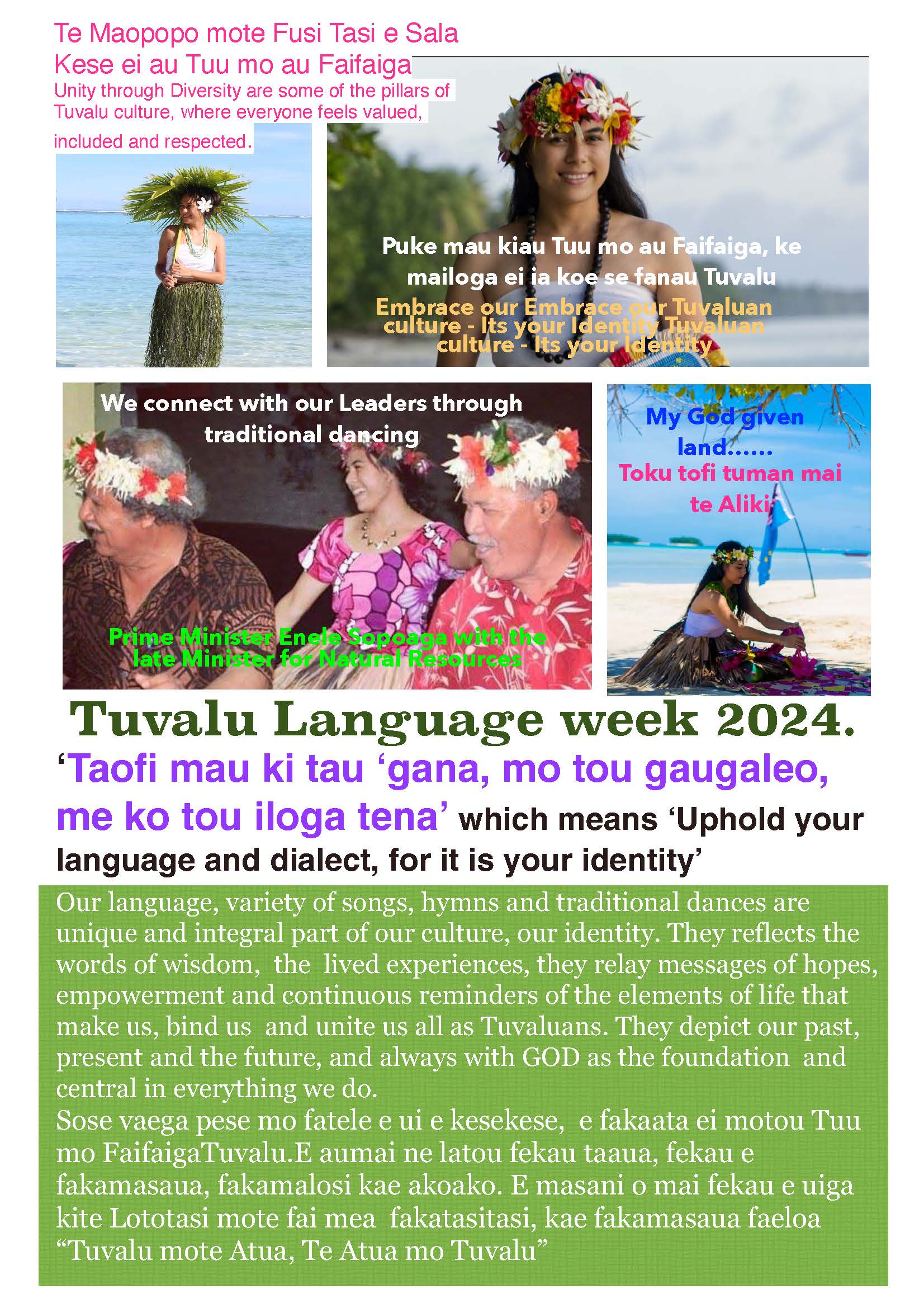
Q. If there is one thing you’d like people to know about your culture, what would that be?
A. Our community has a strong bond through our shared culture that reflects us, shapes us, connects us to our roots, provides us the sense of belonging and our identity. I admire our culture that continues to shape us despite all the challenges we face due to rising sea levels. Our culture fosters a sense of unity, togetherness, and peace. It’s deep rooted in love, respect, community and sharing. Therefore we recognise and celebrate diversity, memories, achievements, failures, and lessons from the past, ensuring that they will remain unforgettable, even when Tuvalu is submerged under water. Last but not least, Tuvalu is small but we have big hearts and a God who is bigger than our problems, the God of Tuvalu.
